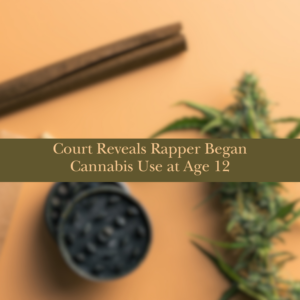Los Angeles Pushes Yelp, Google to Remove Illegal Cannabis Shops

Google and Apple Maps Accused of Legitimizing Unlicensed Cannabis Businesses in California
Search engines and GPS platforms like Google and Apple Maps are under scrutiny for giving legitimacy to unlicensed cannabis businesses in California by failing to distinguish them from licensed dispensaries in search results. This growing concern was highlighted after the Los Angeles County Board of Supervisors unanimously approved a measure aimed at addressing the issue.
Introduced by Supervisor Lindsey Horvath, the proposal seeks to remove illegal cannabis dispensaries from online platforms such as Google, Yelp, and others. According to a report by the Los Angeles Times, the measure calls for stronger regulation of digital platforms to ensure that only licensed dispensaries appear in search results, thereby protecting consumers and supporting legal businesses.
Cracking Down on Illegal Cannabis Advertising
The measure introduced by Horvath directs several Los Angeles County agencies to compile detailed reports within three months, outlining possible actions to curb unauthorized cannabis advertising in the county’s unincorporated areas. This initiative is part of a broader strategy to combat the widespread presence of unlicensed dispensaries, which continue to operate with impunity due to insufficient online oversight.
The motion also urges county leaders to draft and sign a letter encouraging major websites to voluntarily stop advertising illegal cannabis businesses. By addressing this issue at its digital root, the county aims to prevent unlicensed dispensaries from reaching customers through popular search engines and GPS platforms.
The Scale of the Problem in Los Angeles County
Los Angeles County is home to a significant number of cannabis dispensaries, representing roughly 10% of the total dispensaries estimated to operate nationwide, according to data cited from the Pew Research Center. However, a substantial portion of these retailers operates without proper licensing. The California Department of Cannabis Control revealed that of the nearly 1,500 cannabis retailers in Los Angeles County, only 384 dispensaries had valid state-approved licenses as of 2022.
This disparity has created a flourishing black market that undermines the state’s legal cannabis framework. Unlicensed dispensaries often offer cheaper products but lack the rigorous safety standards required of licensed businesses, leading to public health concerns and unfair competition for lawful operators.
Public Health and Safety Concerns
The presence of unlicensed cannabis businesses poses significant risks to consumers. Unlike licensed dispensaries, illegal operators are not bound by state regulations that ensure product safety, such as mandatory testing for contaminants like pesticides, mold, or other harmful substances. This makes the distribution of untested and potentially unsafe products a serious public health concern.
California’s move to crack down on online platforms advertising illegal dispensaries follows a similar initiative in New York, where Governor Kathy Hochul and licensed dispensary owners have called on major digital companies to stop promoting unlicensed cannabis businesses. Hochul’s efforts target platforms like Google Maps, Yelp, and even social media companies such as Meta Platforms, urging them to ensure they are not inadvertently promoting illegal activities.
The concerns in both California and New York highlight the broader national issue of unlicensed cannabis sales being legitimized by online platforms. As more states legalize cannabis, the need to regulate how these businesses are advertised and promoted online is becoming increasingly important.
Legal Implications and Industry Impact
The failure of major online platforms to distinguish between licensed and unlicensed cannabis businesses is not only a legal issue but also has far-reaching consequences for the cannabis industry. Legal dispensary owners argue that they are at a significant disadvantage when forced to compete with unlicensed businesses that operate outside of regulatory frameworks and often sell cheaper products without the same overhead costs.
This issue also presents a challenge for regulators, who struggle to enforce state and local laws designed to govern the legal cannabis market. Without proper oversight from search engines and digital platforms, illegal operators can continue to reach a wide customer base with minimal risk of being caught or shut down.
The Los Angeles County measure reflects a growing awareness that online platforms play a crucial role in enabling illegal cannabis sales. By allowing unlicensed businesses to appear alongside licensed dispensaries, platforms like Google and Apple Maps are inadvertently providing these businesses with a level of legitimacy that they should not have. This creates confusion for consumers, who may not be able to differentiate between legal and illegal dispensaries.
California’s Ongoing Efforts to Regulate the Cannabis Industry
The California cannabis market has long been hampered by the presence of illegal businesses, which have flourished despite the state’s efforts to establish a robust legal framework. In recent years, the state has ramped up enforcement efforts, imposing hefty fines and shutting down unlicensed dispensaries. However, the ease with which these businesses can promote themselves online has made it difficult to completely eradicate the black market.
California’s latest effort to curb illegal cannabis advertising is an extension of its broader goal to support the legal industry and ensure consumer safety. By regulating how digital platforms display search results for cannabis dispensaries, the state aims to give licensed businesses a fairer chance to thrive while protecting consumers from unregulated products.
As the state continues to grapple with the challenges posed by unlicensed cannabis businesses, the role of search engines and GPS platforms will remain central to its enforcement efforts. Whether these digital giants will cooperate with regulators and take the necessary steps to filter out illegal dispensaries remains to be seen.











